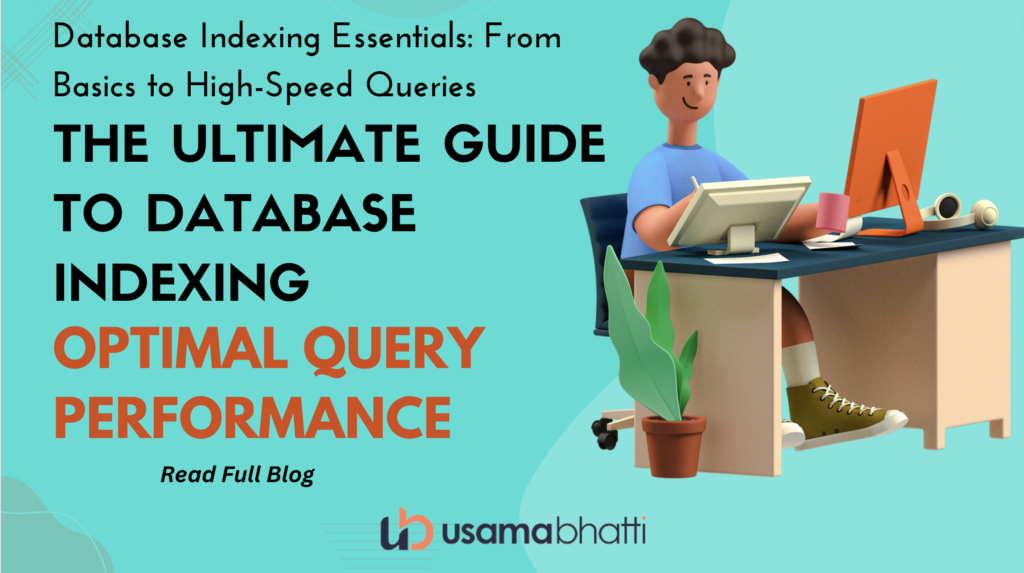-
How can strategic indexing boost database queries for optimal performance?
-
How does the effective use of indexes enhance critical query performance in databases?
-
When should you implement indexes in a database for maximum performance?
-
How can mastering database indexes target performance-critical queries for speed?
-
What are the selective strategies for faster query execution in database indexing?
This blog will address all these questions, exploring various strategies and best practices to enhance database performance through effective indexing. Whether you’re a database administrator or a developer, understanding when and how to apply indexes can significantly speed up your database queries and improve overall system efficiency.
Indexes for Performance-Critical Queries
In the vast and complex world of database management, the decision to use indexing is crucial for optimizing performance. However, it’s essential to recognize that indexes should not be applied indiscriminately to every database query. Instead, their use should be reserved for performance-critical situations. This targeted approach helps manage resource utilization effectively and maintains a balance between speed and storage. Let’s delve into why adopting a selective strategy for indexing is beneficial.
Understanding the Role of Indexes
An index in a database functions similarly to an index in a book; it helps the database engine find data without scanning the entire table. A well-placed index can dramatically speed up data retrieval. However, this doesn’t necessarily mean that more indexes equate to better performance. The key is to use them judiciously to enhance the performance of queries critical to your application’s functionality and user experience.
The Cost of Indexes
No doubt indexes help you retrieve data very quickly, but they come with costs that need to be carefully considered:
- Increased Storage Requirements:
Indexes take up space. This space is not just a one-time allocation but expands as more data is added to the database. Over-indexing can lead to a bloated database, consuming more disk space and potentially increasing hardware costs. - Maintenance Overhead:
Indexes need to be maintained. The corresponding indexes must also be updated whenever data is inserted, updated, or deleted. This can introduce latency and degrade performance, particularly on heavily used tables where frequent writes occur. This maintenance can become a bottleneck for high-throughput systems, negating the performance benefits during data retrieval.
Strategic Indexing for Critical Queries
To optimize the use of indexes, focus on queries vital for your application’s performance. These typically include queries that:
- Support Large-Scale Data Retrievals:
Queries that fetch large amounts of data based on specific criteria can benefit significantly from indexing. For example, an index on the customer ID or email can expedite searching for customer information in a large database. - Are Frequently Used:
Queries executed frequently and form the backbone of your application’s functionality should be prioritized for indexing to ensure quick response times. - Impact User Experience:
Any query that directly impacts the user experience, such as those affecting the load times of user interfaces, should be considered for indexing.
Index Management Best Practices
Managing indexes effectively involves more than deciding where to place them. It requires ongoing monitoring and adjustment:
- Regular Review:
Regularly review and analyze the performance impact of existing indexes. Remove or adjust indexes that no longer benefit from query patterns or data structure changes. - Balanced Approach:
Aim for a balance between the number of indexes and the overall database performance. Too few indexes can slow down read operations, while too many can hinder write operations. - Use of Tools:
Utilize database management tools that can assist in identifying which queries are running slow and could benefit from indexing.
Conclusion
Reserving indexes for performance-critical queries can help you significantly improve database performance and efficiency. By understanding when and where to use indexes, you can ensure that your database is not only fast but also cost-effective and scalable. Remember, the goal is to support your application’s needs without compromising overall system health.
